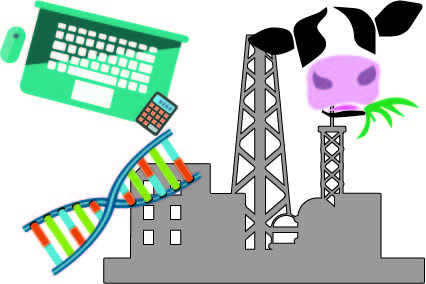UW-Platteville Fall 2020 EMS Seminar Series
In 1994 the construction of the Milwaukee Deep Tunnels was completed. These tunnels would allow 520 million gallons of wastewater to be stored to prevent wastewater backups and untreated water from entering Lake Michigan.
Lavern Nall, the President of Strass-Maguire and Associates, presented “Protection of Buildings from the Construction of Milwaukee’s ‘Deep Tunnel” as a part of UW-Platteville’s Fall 2020 EMS Seminar Series. The seminar presented was the last for the 2020 fall semester. However, like many campus events at UW-Platteville, the Seminar Series was moved online to a virtual format due to the ongoing COVID-19 pandemic.
The Milwaukee Metropolitan Sewerage District (MMSD) constructed a deep tunnel system in the 1990s to facilitate a reduction in sewer overflows. According to Nall, the project incorporated numerous engineering firms and contractors over many years, with Strass-Maguire and Associates being one of them. The construction of the tunnel, however, damaged buildings and infrastructure, and MMSD knew that damage would happen. Initially, repairs to damage began, but, according to Nall, MMSD found that it was more cost-effective to dispute damage claims.
Nall’s seminar brought insight into how these mega-projects are constructed and designed on a local level with the involvement of many firms and contractors to solve an environmental issue.
All the Seminars presented aim to “bring real-world engineering projects to students, faculty and the public,” said Danny Xiao in an interview, who is also an assistant civil engineering professor and organizer for the EMS Seminar Series.
These seminars have been presented in-person for the last five years. However, the goal of them is still the same. According to Xiao, the mission of these events is to “empower each student to become broader in perspective, intellectually more astute and contribute wisely to our community” and to “provide a networking opportunity for attendees.”
The lack of in-person networking has made way for a more online approach to connecting people. In Xiao’s interview, he stated that “Nevertheless, virtual seminars enabled us to reach attendees at a far distance such as Milwaukee and Green Bay that would not be possible in any in-person seminar. So, it is true that there are two sides to every coin.”
Social-distancing has diminished in-person conferencing due to the exposure risk of traveling and close-quarter contact. The necessitated use of virtual conference calls has added benefits, and according to Nall, “Virtual seminars are convenient with no travel and lodging required; I think they will continue after COVID-19.”
With the end of the Seminar Series in its first virtual offering, Xiao sums up his thoughts; “considering all the challenging things happened in 2020, I am glad we adapted and kept offering the Seminar Series. Thanks to the sponsors and speakers who presented. It is great to see many projects in steady progress, and by working together we will overcome the challenge. Either it is obstacles in project design, construction or a pandemic.”
While the length of the pandemic is still up in the air, Xiao says he plans to offer the EMS Seminar Series in the same virtual format for the Spring 2021 semester. UW-Platteville Roman Andrew, a freshman majoring in mechanical engineering, said in an interview about the EMS Seminar and regarding attending it in the Spring that he would rather attend in-person compared to virtually. However, virtual attendance is still appealing to him. Amidst the uncertain reality of the world currently and the changing reality of the Seminar Series, it is safe to say both realities are going to stay virtual in the meantime.




